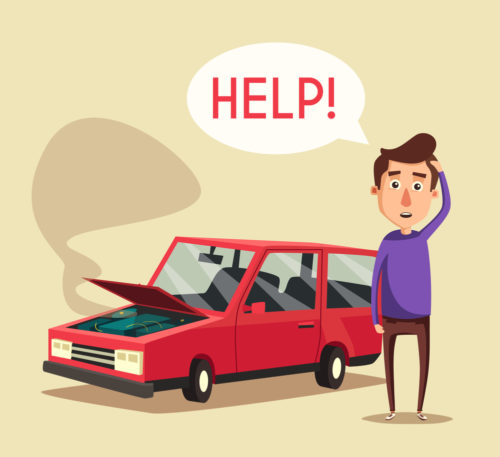How to Avoid Transmission Overheating
A transmission is an engine component that transfers the car's power to the driveshaft and wheels, allowing the car to move. It controls the gear ratios, enabling the vehicle to accelerate and slow as needed.
Needless to say, transmissions are vital parts of engines, and if overworked (or not maintained), they can overheat. While regular transmission servicing should always be left to professionals, you can take steps to prevent transmission overheating.
Below is everything you need to know about transmission overheating problems, diagnosis, and how we at Automatic Transmissions R Us can help.
What Is Transmission Overheating?
Transmission overheating occurs when the engine's cooler cannot maintain the transmission temperature at a low enough degree. The inability to keep the engine cool causes the transmission to become damaged and, if not repaired, fail.
Need Urgent Help? Contact Us Now!
What Causes Transmission Overheating?
It is normal for the transmission to become hot while driving due to the amount of work the transmission does. However, if the cooler cannot control the temperature, there is either an issue with the engine or how the vehicle is being driven.
Transmission overheating is generally caused by:
Transmission Fluid Problems
Low fluid levels or old transmission fluid causes friction between the parts and causes overheating. Fluid problems are the most common reason for transmissions overheating.
Driving in Hot Weather
Transmission problems can be caused by driving in a hot climate, as when the fluid temperature rises and stays elevated for prolonged periods, there’s a greater risk of overheating.
Towing Heavy Loads
A hot transmission can be caused by heavy towing as the extra weight makes transmissions work harder, and the additional stress generates more heat.
Driving in Heavy Traffic
Stop-start traffic conditions, such as busy town driving during rush hour, can cause transmission problems as it forces the transmission to work harder, increasing stress.
Transmission Overheating Symptoms
A transmission specialist or mechanic can spot symptoms of an overheated transmission before it becomes noticeable to the driver and causes too much issue.
However, if you suspect an overheated transmission or notice these symptoms, it is best to take your car to a transmission mechanic.
Transmission Slipping
This is especially a problem in automatic transmission failures. A high RPM, acceleration delays, unusual gear noises, and difficulty shifting gears will indicate a slipping transmission.
Low Transmission Fluid Level
Transmission fluid lubricates the mechanisms, preventing oxidation, rust, and more. Your transmission fluid needs to be at a sufficient level to operate, otherwise, it is susceptible to overheating.
Burnt Transmission Fluid
If the transmission fluid seems ineffective or burnt out, it might give out a burning smell. You should change the fluid immediately if you experience this scent to avoid further damage.
Solenoid Malfunction
The solenoid determines how much fluid passes into the transmission. If ih4t’s defective or misfiring, it can damage the transmission and cause overheating.
How to Avoid Your Transmission Overheating
The good news is that there are a few simple steps you can take to prevent your transmission from overheating.
Maintain the Car's Cooling System
The vehicle's radiator reduces the transmission temperature by passing coolant through metal fins, allowing the heat to flow to the air outside your vehicle. If you tow heavy loads, consider adding an extra cooler.
Check the Fluid Levels
Check transmission fluid levels with the transmission dipstick every few weeks to ensure there is enough fluid to continue lubricating the transmission parts. If there is less fluid than expected, this could be a sign of an issue.
Change the Transmission Fluid Regularly
We recommend that you change the transmission fluid every 30,000 to 60,000 miles, and more often, you drive long-haul routes, operate your vehicle in hot climates, or tow heavy loads.
Fresh transmission fluid reduces transmission wear, which reduces the risks of overheating.
Avoid Transmission Failure With Auto Trans
Ultimately, the best way to avoid having your transmission overheat is to service your car regularly through a licensed professional who can check the transmission components and minimise any risks.
We are Perth's leading transmission repair and rebuild specialists at Automatic Transmissions R Us. Contact us today by sending an online enquiry, emailing info@autotrans.com.au, calling (08) 7078 8361, or by submitting a contact form below!

